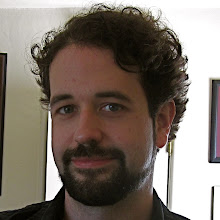How has your understanding of the TPEs changed as a result of the readings you just did? Are you clearer about the TPEs and their role in teaching, or are you even more confused as a result of the readings?
The readings definitely helped. As I mentioned in my TPE Introduction post, most of the Teacher Performance Expectations make intuitive sense. The question, for me, was not "Why is this important?", but "How can this be effectively implemented in the classroom?"
The articles on classroom management and strategies for assessment were particularly valuable to me. It was very helpful to see someone identify the different types of high-need students we're likely to encounter and prescribe specific strategies for working with them. As for assessment, I'd never seen anyone explicitly distinguish between testing of learning, testing for learning, and testing as learning, and that article definitely sparked some ideas about different ways to use assessments in class. The article on being a culturally responsive teacher was also valuable; it really pointed out how students bring the weight of their experiences into the classroom, and it gave me some ideas on how I might make biology more relevant for students from different backgrounds.
Which TPE do you think will be the easiest (or most natural) for you, and which do you feel will be the most difficult?
The easiest one, I think, will be TPE 4 - Making Content Accessible. I've been explaining science to everyone who would listen since I was ... oh, about five years old ... and most of my friends and family don't have much formal education on the subject, so I have a lot of practice in making the complex understandable. My experiences at UC-Santa Cruz further point to my ability on this front; one of my thesis committee members told me, after my defense presentation, that it was the best lecture she'd ever heard a student present in all her years of teaching.
My biggest challenge will probably be TPE 7 - Teaching English Language Learners. As I said in my intro, this is largely new territory for me, and I'm looking forward to learning techniques that will help me. Victoria's comment about treating the language of science like a foreign language was instructive: when I studied Spanish, we were first introduced to the vocabulary, then given opportunities to practice using it in both spoken and written exercises. We were also exposed to the use of that vocabulary in different contexts: prose, music, and video, among other things. I'll be thinking about ways that I can adapt that approach to the science classroom -- though, in the case of science, I think it will often take the form of doing experiments and then practicing the language by talking about the things the students are observing.
With all of the focus on the different ways that students learn, I found this segment of the coursework a little ironic in that all of the material was presented in the same way: through reading articles excerpted from journals. This sort of passive learning isn't my most effective way of absorbing information; I have to get my hands into something before I can really feel like I know it. With that in mind, I'm very much looking forward to our upcoming retreat.
Subscribe to:
Post Comments (Atom)

2 comments:
Chris, I really question your comment that we didn't use multiple methods to introduce this information. Maybe you simply need to take more initiative here. :) For example, you could record yourself reading an article and then listen to it (auditory stimulation). You could create an artistic representation of what you read (visual/spatial) and then post a picture on your blog. You could even write a song based on the information (musical). Oooh...you could compare and contrast the needs of plants and students to grow and develop (natural). See? There...many different ways to process the information using different intelligences and all it takes is a little initiative and creativity. (hee hee!)
Har, har. :) I don't have any problem with the blogging side of it -- I enjoy working through my thoughts in this format. The problem is that getting the information INTO my head still requires sitting and reading a lot of text, and I do better taking in information through other means (such as lectures and practical demonstrations). All of the things you suggested are ways to wrestle with the data once you already have it in your head, and for that, writing works well for me.
Post a Comment